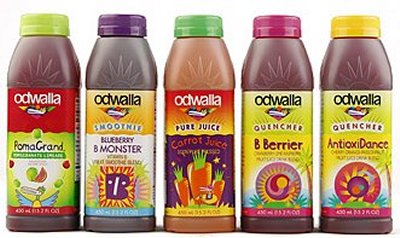Breakthrough for stevia sweetener
Shortly before Christmas, Coke started delivering stevia-sweetened Odwalla Mojito Mambo and Odwalla Pomegranate Strawberry nationwide and hoped to introduce Sprite Green in New York and Chicago before the end of the year.
Pepsi will follow with SoBe Lifewater in three flavours (black and blue berry, Fuji apple pear and yumberry pomegranate) as well as a 50 percent reduced-calorie orange juice, Trop50.
The launch of these drinks marks Coke’s victory over the FDA which has taken its own sweet time over granting the stevia-derived sweeteners the status of “generally recognized as safe” (known as GRAS in the industry).
For years, Coke has been lobbying for a GRAS status for Truvia.
Industry pundits say that GRAS is a short-cut to get approval for an ingredient without going through the usual array of studies on the safety and health effects intended to prove an ingredient safe. This short-cut saves the industry a lot of money and potential test animals a lot of suffering.
GRAS has another benefit: advocates of stevia-based sweeteners feared that sweetener manufacturer Cargill would get an approval exclusive to their highly purified version of stevia sweetener, called Truvia. But GRAS status should allow competitors to enter the market. Some stevia-based sweeteners and even softdrinks are available on the market already, being marketed under the "dietary supplement" label, a regulatory loophole which allows the sale of products with less safety testing.
In retrospect, the battle to get Truvia permitted in the U.S. had very little to do with stevia’s safe or unsafe use. Instead it seems to have been all about power – or who wields more power: the FDA or industry.
Just consider this. In November 2008, Coke’s patience with the FDA is running out. Early in December, The Coca-Cola Company announces it will begin selling beverages sweetened with stevia even without FDA approval. How could this be done? Well, Coke would simply "self-affirm" Truvia as being a safe sweetener.
Obviously, the FDA sees its authority threatened by Coke. If Coke can simply declare ingredients to be safe and start using them, then what’s the point of having FDA approval?
The FDA isn’t happy about Coke threatening an end-run around the FDA’s regulatory power, so it begins to look at ways to make life difficult for Coca-Cola. Hence, on 10 December 2008 the FDA fires a shot at Coke, saying its Diet Coke Plus products are illegally labelled. Funnily, Diet Coke Plus has been on the market for over 18 months, but only now, after the TRUVIA threat, did the FDA decide to move against Coke.
Coke responds by saying its products are legally labelled. The FDA does not respond.
Or rather, it responds on 17 December 2008 by issuing a letter "authorizing" Coke to market stevia-sweetened beverages. The other option would have been to halt the marketing of stevia products.
It appears that the FDA felt it does not have the political power to pull that off against Coke. With its hand forced by The Coca-Cola Company, the FDA issues a "letter of no objection" that allows Coke to sell stevia-sweetened beverages and still maintains the appearance of FDA authority.
In the battle of Coke vs. the FDA, the regulator’s reputation has been tainted. The truth of the matter is that Coke was about to market the products anyway, without FDA approval. As was argued, the FDA has become little more than a regulatory ragdoll. Having worked so closely with other businesses (namely the producers of other sugar substitutes) it had no credibility left to move against The Coca-Cola Company.
The recent ruling by the FDA still has not cast a decision if stevia-based sweeteners are really safe to use. GRAS-status is not the same as “safe”.
Although the stevia plant has been used by inhabitants of its native growth zones for centuries as a sweetener, even its defenders admit that it has side-effects, namely that it can adversely affect human fertility.
Studies have suggested that stevia sweeteners can have cancer-causing effects and mutagenic effects, as well as reducing male fertility. But all the news is not bad. In Japan, for example, the natural low calorie stevia sweeteners have been preferred over artificial sweeteners for the past four decades.
Food standards agencies in Australia and New Zealand have also approved stevia as an ingredient for food and beverages in October 2008.
Only the EU is holding back on approval for use of stevia in food and beverages.
In December 2008, Odwalla Mojito Mambo and Odwalla Pomegranate Strawberry were added to Odwalla’s range of beverages. The two drinks will be available in 450 ml “grab-n-go” recyclable plastic bottles at a suggested retail price of USD 3.29.

